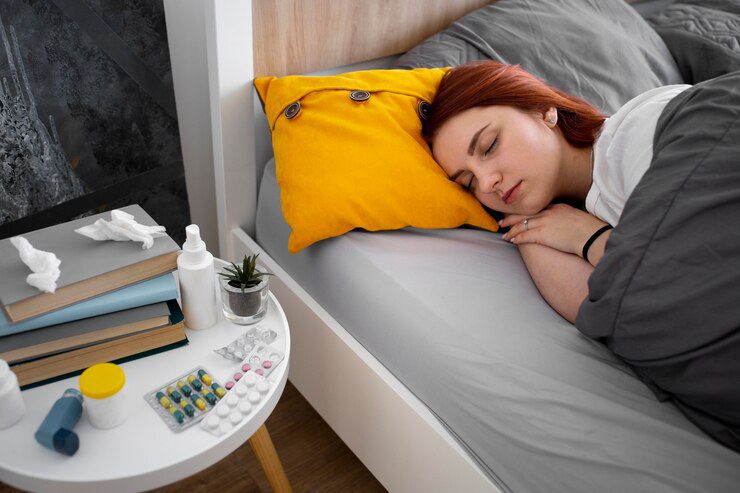Tossing and turning all night? Struggling to wake up feeling refreshed? You’re not alone. Millions of people worldwide grapple with poor sleep quality, leading to fatigue, decreased productivity, and a negative impact on overall health. But before you reach for sleeping pills, consider the power of sleep hygiene.
Sleep hygiene encompasses a series of habits aimed at fostering healthy sleep routines. These habits create an environment that encourages restful sleep and can significantly promote sleep quality improvement.
Here are some key sleep hygiene practices to incorporate into your routine:
Creating a Consistent Sleep Schedule:
Our bodies thrive on routine. Maintain a consistent sleep schedule by going to bed and waking up at the same time every day, including weekends. This consistency regulates your body’s natural sleep-wake cycle, making it easier to fall asleep and wake up feeling refreshed.
Crafting a Relaxing Bedtime Routine:
Wind down before bed with a relaxing bedtime routine. Avoid stimulating activities like watching television or scrolling through social media for at least an hour before sleep. Opt for calming activities like reading a book, taking a warm bath, or practicing light stretches.
Optimizing Your Sleep Environment:
Your bedroom should be a haven for sleep. Ensure it’s dark, quiet, and cool. Invest in blackout curtains to block out light, earplugs to minimize noise distractions, and a comfortable mattress and pillows that provide proper support.
Light Exposure Matters:
Sunlight plays a crucial role in regulating your sleep-wake cycle. Expose yourself to natural light during the day, ideally in the morning. In the evening, dim the lights to signal to your body that it’s time to prepare for sleep.
Exercise Regularly:
Physical activity promotes better sleep and is one of the natural sleep aids, but avoid strenuous workouts close to bedtime. Aim for moderate exercise at least a few hours before sleep. Engaging in regular exercise can expedite falling asleep and promote deeper, more restful sleep.
Power Down Electronics:
The blue light emitted from electronic devices like smartphones and laptops can disrupt your sleep cycle. Refrain from using these devices for at least one hour before bedtime. Consider setting your phone to “night mode” to reduce blue light emission in the evening.
Create a Sleep-Promoting Diet:
What you eat can impact your sleep. Avoid heavy meals, sugary snacks, and caffeine close to bedtime. Opt for a light, healthy dinner a few hours before sleep. Certain foods like chamomile tea or tart cherry juice may promote relaxation and sleep quality improvement.
Relaxation Techniques:
If you find your mind racing at night, incorporate relaxation techniques into your bedtime routine. Experiment with deep breathing exercises, progressive muscle relaxation, or meditation. These techniques can assist in soothing your mind and readying you for sleep.
Manage Stress Effectively:
Chronic stress is a major sleep disruptor. Develop healthy coping mechanisms for managing stress throughout the day. Consider practices like yoga, journaling, or spending time in nature to unwind and de-stress before bedtime.
Listen to Your Body:
If you can’t fall asleep after 20-30 minutes, get out of bed and engage in a relaxing activity until you feel tired. Lying awake in bed frustrated will only worsen your sleep.
Naps Can Help (But Not Too Much):
A short afternoon nap (20-30 minutes) can be beneficial, but avoid napping too late in the day as it can interfere with nighttime sleep.
Seek Professional Help When Needed:
If, despite implementing these sleep hygiene habits, you continue to experience sleep problems, consult a healthcare professional. They can rule out any underlying medical conditions and provide personalized advice to improve your sleep quality.
Improving Sleep Quality: A Gradual Process
Remember, sleep quality improvement is a gradual process. Don’t get discouraged if you don’t see immediate results. Be patient, and consistent with your new sleep hygiene routine, and celebrate your progress.
Conclusion
By incorporating these practices into your daily life, you can create a foundation for better sleep. Improved sleep quality will leave you feeling more energized, focused, and ready to tackle whatever life throws your way. So, ditch the sleep deprivation and embrace a world of restful nights and productive days!







